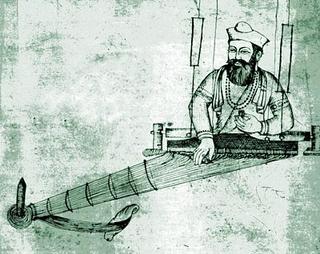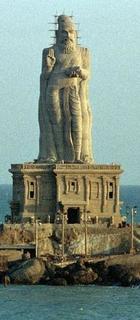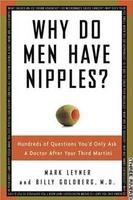
Kabir is one saint, I truly wish to follow. His ideas are simple, revolutionary(at the time he said and even now), and easy to implement. My search in understanding his philosphy is still on. This blog is a small introduction to him
.Kabir was born in India in 1398 AD. He lived for 120 years. According to one of the legends, he was of a virgin birth. It is said that his mother becomes pregnant after visiting a Hindu shrine. Upon delivery the child is given up for adoption. Kabir was raised among a Muslim community of weavers. He was never formally educated and was almost completely illiterate. According to legend, the only word that he ever learned how to write was "Rama".
The basic religious principles he espouses are simple. According to Kabir, all life is an interplay of two spiritual principles. One is the personal soul (Jivatma) and the other is God (Paramatma). It is Kabir's view that salvation is the process of bringing into union these two divine principles.
The social and practical manifestation of Kabir's philosophy has rung through the ages. It represented a synthesis of Hindu, and Muslim concepts. From Hinduism he accepts the concept of reincarnation and the law of Karma. From Islam he takes the affirmation of the single god and the rejection of caste system and idolatry. Not only has Kabir influenced Muslims and Hindus but he is one of the major inspirations behind Sikhism as well. The Holy Guru Granth Sahib contains over 500 verses by Kabir. The Sikh community and others who follow the Holy Granth, hold Kabir in the same reverence as the other ten Gurus.
Kabir openly criticized all sects and gave a new direction to the Indian philosophy. This is due to his straight forward approach that has a universal appeal. It is for this reason that Kabir is held in high esteem all over the world.
The hall mark of Kabir's poetry is that he conveys in his two line poems (Doha), what others may not be able to do in many pages.Another beauty of Kabir's poetry is that he picks up situations that surround our daily lives. Thus, even today, Kabir's poetry is relevant and helpful in guiding and regulating our lives, in both social and spiritual context.
Some of the his poems -
Moko Kahan Dhundhere Bande, Mein To Tere Paas Mein,
Na Teerath Mein, Na Moorat Mein,
Na Ekant Niwas Mein, Na Mandir Mein,
Na Masjid Mein, Na Kabe Kailas Mein,
Mein To Tere Paas Mein Bande Mein To Tere Paas Mein,
Na Mein Jap Mein, Na Mein Tap Mein, Na Mein Barat Upaas Mein,
Na Mein Kiriya Karm Mein Rehta, Nahin Jog Sanyas Mein,
Nahin Pran Mein, Nahin Pind Mein,
Na Brahmand Akas Mein, Na Mein Prakuti Prawar Gufa Mein,
Nahin Swasan Ki Swans Mein,
Khoji Hoye Turat Mil Jaoon Ik Pal Ki Talas Mein,
Kahet Kabir Suno Bhai Sadho Mein To Hun Viswas Mein
TranslationWhere do you search me? I am with you
Not in pilgrimage, nor in icons, Neither in solitudes, Not in temples,
nor in mosques, Neither in Kaba nor in Kailash,
I am with you o man I am with you,
Not in prayers, nor in meditation, Neither in fasting, Not in yogic exercises, Neither in renunciation, Neither in the vital force nor in the body,
Not even in the ethereal space, Neither in the womb of Nature,
Not in the breath of the breath,
Seek earnestly and discover In but a moment of search,
Says Kabir, Listen with care Where your faith is, I am there.
DohasThis one most of u out there must have heard - For my fellow procastinators ;)
Kaal Kare So Aaj Kar, Aaj Kare So Ub
Pal Mein Pralaya Hoyegi, Bahuri Karoge Kub
Do Tomorrow's work today, today's work now
if the moment is lost, when will u complete the work
For my friend Arjuna, the concept of Advaita by Kabir
Jab Mein Tha Tab Hari Nahin‚ Jab Hari Hai Mein Nahin
Sab Andhiyara Mit Gaya‚ Jab Deepak Dekhya Mahin
When "I" was then Hari was not, Now Hari "is" and "I" am not
All the darkness (illusions) mitigated, When I saw the light (illumination) within
For all us fault findersBura Jo Dekhan Main Chala, Bura Naa Milya Koye,
Jo Munn Khoja Apnaa, To Mujhse Bura Naa Koye
I searched for the evil in the world, didn't find a single one,
When searched within myself, I found out that none were more evil than me
An attitude that we need to develop - Nothing wrong in asking for yourself, but do remember others too
Sayeen Itna Deejiye, Ja Mein Kutumb Samaye
Main Bhi Bhookha Na Rahun, Sadhu Na Bhookha Jaye
Give so much O God, suffice to envelop my clan
I should not suffer cravings, nor the visitor goes unfed
Major Extracts from
http://www.boloji.com/kabir/ - One of the best sites on Kabir,
Do make it a point to read more dohas from this site



